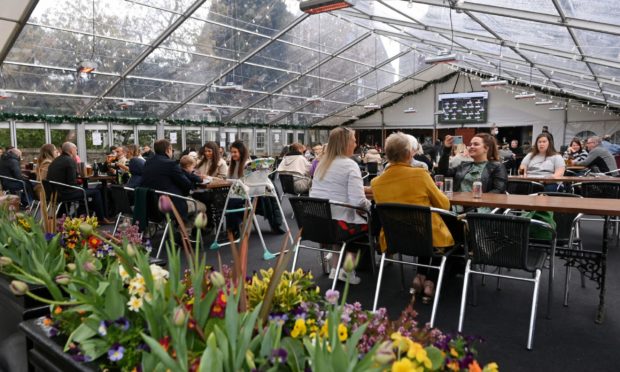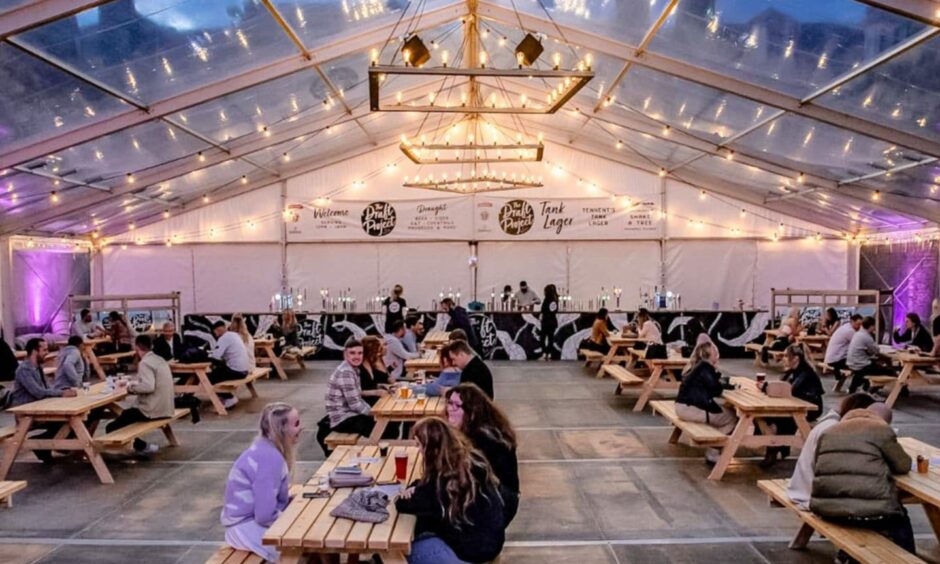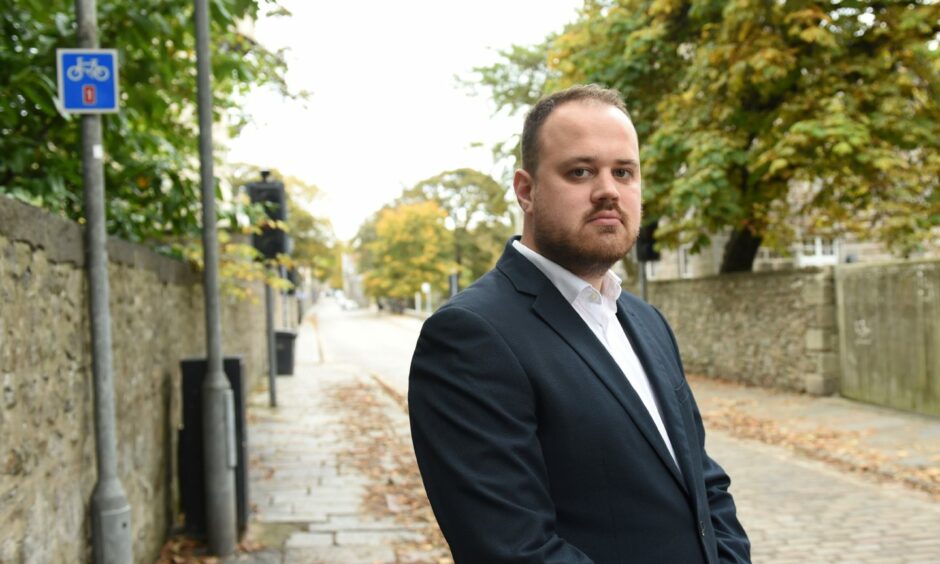Authorities in Aberdeen may review the rules around beer tents and outdoor hospitality – in order to keep up with the significant change the trade has endured during the pandemic.
Licensing Board convener Marie Boulton has admitted a change could soon be needed, after having to reject three pleas for changes in opening hours of recently installed marquees.
It comes as the hospitality sector begins to look to a future beyond the immediate survival through the Covid emergency that threatened their livelihoods.
With that in mind, some – including the The Dutch Mill in Queens Road, The Ploughman in North Deeside Road, Buckie Farm in Danestone and PB Devco’s Howff and Draft Project – have moved to make their outdoor areas part of their long term future.
And having spent thousands on their new setups, many had pushed to get more out of them and have them recognised as permanent fixtures.
Currently, all outdoor spaces – with few exceptions – must be closed at 10pm to reduce noise for neighbouring properties.
Only a handful of premises with much older licences are allowed to keep festivities flowing outside later into the night.
But The Dutch Mill, Buckie Farm and The Howff – with its rebrand of The Draft Project to The Howff Garden – all pressed licensing chiefs for leeway until midnight – matching the capabilities of their indoors spaces.
It marks an uncomfortable meeting point of the occasional licence system – which has temporarily been used to prop up the trade during the Covid hardship – and the permanent licences which would set precedent for wider change throughout the city.
While refusing the requested change to midnight closing and to allow music to be played in the marquees at The Dutch Mill, Councillor Boulton said the board needed to reflect policy in decision-making, warning it could set a precedent for change throughout the city.
“Perhaps in due course, we maybe need to revisit it to ensure it is still fit for purpose,” she added.
“But given the policy is not that old, we have tried to be extremely flexible through Covid and continue to do so.
“We have to respect the residential amenity and understand noise doesn’t stay within the confinement of a tent or car park or whatever else.
“While we look at each application on its own merit it wouldn’t take much imagination to look up the street and see what could come our way.”
She admitted having “every sympathy” for proprietors, who she said wanted to move forward and make a success of their businesses.
Relaxations allowing establishments the flexibility to play music or put on entertainment in their outdoor areas had been allowed during a “very stressful and difficult time,” she said.
Calls for authority to ‘act and adapt’ to post-Covid trading
However, within the board there was a mix of views on the need for continuing flexibility – with calls for a “frank conversation” on how to proceed in the future.
Councillor Alex McLellan backed The Dutch Mill’s calls, urging his colleagues to “act and adapt” to the circumstances the trade found themselves in.
“They have obviously seen a successful venture and invested in the infrastructure to have outdoor areas.
“Generally, while this is one application, perhaps there is a frank conversation and discussion needed to be had around where we go in terms of the policy on these external areas.
“Given the pandemic a number of premises in the city have invested heavily to adapt in infrastructure and provide an offering that was suitable at that given moment.
“And we as a board perhaps have to adapt our – I agree, relatively new policy – to consider the way in which we move forward to incorporate what infrastructure has been bought by businesses.
“Certainly I would not like to see a number of premises have to get rid of it.”
It comes as councillors will next week vote on whether to allow the temporary flexibility on the many beer tents which have popped up during the pandemic to remain in place until March – as encouraged by the Scottish Government.
Members will also consider drastic changes to the city centre and beach areas, with part of the work aimed at cultivating a European cafe culture of outdoor food and drink.


